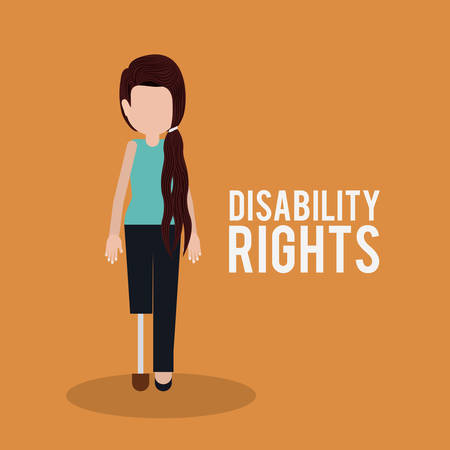1. Understanding the Impact of Stigma on Depression Rehabilitation
The Reality of Stigma in Mental Health
Stigma around mental health is still a big challenge in the United States. Many people with depression feel judged or misunderstood, making it harder for them to ask for help. This stigma can come from society, media, and even close friends or family. As a result, individuals often hesitate to join rehabilitation programs or reach out for support.
How Stigma Affects Seeking Help
When someone feels ashamed or worried about being labeled, they might avoid talking about their struggles. This can delay getting proper treatment and slow down recovery. People may worry about being seen as “weak” or “unreliable,” especially at work or in social situations. These fears are powerful barriers that stop people from participating fully in rehabilitation.
Common Societal Misconceptions About Depression
| Misconception | Reality |
|---|---|
| Depression is just feeling sad | Depression is a serious medical condition with emotional, physical, and cognitive symptoms |
| You can “snap out of it” | Recovery takes time, support, and often professional help |
| Asking for help is a sign of weakness | Seeking help shows strength and courage |
| Only certain people get depressed | Depression can affect anyone, regardless of age, background, or lifestyle |
Personal Barriers to Rehabilitation Participation
- Fear of judgment: Worrying about what others will think if they know about the depression diagnosis.
- Lack of understanding: Not recognizing that depression is treatable and that help is available.
- Low self-esteem: Feeling unworthy or hopeless about getting better.
- Mistrust in healthcare: Past negative experiences with medical professionals can reduce willingness to seek treatment.
The Importance of Breaking the Stigma
Breaking the stigma around mental health is crucial for improving participation in depression rehabilitation programs. Education, open conversations, and supportive environments all make a difference in helping individuals take the first step toward recovery.
2. Promoting Advocacy: Empowering Voices in Mental Health
The Power of Advocacy in Breaking Down Barriers
Advocacy plays a key role in fighting the stigma around depression, especially in American communities where mental health can still be misunderstood. By speaking up and supporting mental health awareness, advocates help break down barriers that keep people from seeking help or talking openly about their struggles. When individuals, families, and organizations come together to promote understanding, it makes a real difference in how society views depression.
Sharing Lived Experiences: Real Stories Matter
One of the most effective ways to challenge stigma is by sharing real-life experiences with depression. When people hear personal stories—whether from friends, celebrities, or community members—it helps others feel less alone and more willing to reach out for support. Lived experiences show that depression is common and treatable, not something to be ashamed of.
Benefits of Sharing Personal Stories
| Benefit | Description |
|---|---|
| Builds Empathy | Helps others understand what living with depression feels like |
| Encourages Openness | Makes it easier for others to talk about their own mental health struggles |
| Reduces Isolation | Reminds people they are not alone in their journey |
| Promotes Recovery | Shows that recovery is possible and resources are available |
Influencing Policy for Better Support Systems
Advocacy goes beyond personal stories; it also involves working for changes in public policy. In the U.S., mental health advocates push for better insurance coverage, more accessible treatment options, anti-discrimination laws, and increased funding for research and services. These efforts can lead to important changes that directly benefit those living with depression.
How Advocacy Shapes Policy Change
- Raising Awareness: Educating lawmakers about the realities of depression and its impact on everyday life.
- Pushing for Legislation: Supporting bills that protect the rights of individuals with mental health conditions.
- Improving Access: Advocating for expanded access to affordable therapy, medication, and community programs.
- Ensuring Equity: Working to eliminate disparities in mental health care across different communities.
The Role of Community Organizations and Individuals
You dont have to be a professional advocate to make a difference. Local support groups, schools, workplaces, and even online platforms offer opportunities for everyday people to get involved. Whether its participating in mental health awareness events, joining advocacy groups like NAMI (National Alliance on Mental Illness), or simply checking in on friends and family, every voice matters in the fight against depression stigma.

3. Raising Awareness in American Communities
Understanding the Importance of Mental Health Awareness
Breaking the stigma around depression starts with open conversations and accessible information. In the United States, communities are diverse and have unique needs. Raising awareness about mental health, especially depression, helps people seek support without fear or shame. It also encourages friends, family members, and neighbors to better understand and assist those affected.
Effective Strategies for Community Outreach
There are several strategies that can help spread mental health awareness in different communities across America. These approaches can be tailored to fit local cultures, languages, and experiences to ensure everyone feels included and supported.
Key Strategies at a Glance
| Strategy | Description | Examples |
|---|---|---|
| Educational Campaigns | Provide accurate information about depression and treatment options using easy-to-understand materials. | Social media posts, flyers in schools, online webinars |
| Collaborations with Local Organizations | Partner with trusted community groups to reach more people and build trust. | Workshops at churches, events with youth clubs, talks at community centers |
| Culturally Sensitive Outreach | Create programs that respect cultural beliefs and languages, making mental health resources more accessible. | Bilingual hotlines, materials in multiple languages, culturally relevant support groups |
Building Trust Through Community Partnerships
Local organizations like schools, faith-based groups, and nonprofits play a big role in spreading awareness. By working together, these groups can host workshops or support groups where people feel safe sharing their experiences. Trusted community leaders can help break down barriers by endorsing mental health conversations.
The Role of Education in Reducing Stigma
Simple educational campaigns—like classroom presentations or social media infographics—help bust myths about depression. These efforts encourage people to seek help early and reduce feelings of isolation.
Culturally Respectful Engagement Matters
In America’s multicultural society, it’s important to recognize different beliefs about mental health. Reaching out in multiple languages or adapting resources for specific cultural traditions helps everyone feel seen and heard. For example, holding support circles led by bilingual counselors or offering printed guides tailored to local customs can make a big difference.
4. Integrating Support Systems in Rehabilitation
The Power of Support: Family, Peers, and Community
When it comes to depression rehabilitation, support systems play a huge role in breaking the stigma and promoting recovery. In the United States, where independence is valued but loneliness is common, having strong connections can make a real difference. Family members, friends, and community groups can all help create an inclusive environment that encourages healing and understanding.
How Different Support Systems Help
| Support System | Role in Recovery | How to Leverage |
|---|---|---|
| Family | Offers emotional support, daily encouragement, and helps reduce feelings of isolation. | Attend therapy sessions together, communicate openly about feelings, avoid judgmental language. |
| Peers | Provides shared experiences and mutual understanding, making people feel less alone. | Join support groups or peer-led meetings; keep in touch with friends who are supportive. |
| Community | Creates a sense of belonging and access to resources like group activities or counseling. | Participate in local events or outreach programs; utilize resources from mental health organizations. |
Building an Inclusive Environment
A big part of advocacy is making sure everyone feels welcome—no matter where they are on their journey. In American culture, this could mean schools having counselors available, workplaces offering Employee Assistance Programs (EAPs), or neighborhoods organizing wellness workshops. These efforts help break down barriers and show that mental health matters just as much as physical health.
Tips for Supporting Someone with Depression
- Listen without judgment—sometimes just being there is enough.
- Encourage professional help when needed but respect their pace.
- Avoid minimizing their feelings; statements like “just snap out of it” can be harmful.
- Stay connected through texts, calls, or even short visits.
- Get involved in advocacy or awareness campaigns to normalize conversations about mental health.
By integrating family, peer, and community support into rehabilitation, we create a network that not only aids recovery but also challenges the stigma surrounding depression. When everyone plays a role, individuals struggling with depression can feel seen, heard, and supported on their path to wellness.
5. Action Steps Toward a Stigma-Free Future
Understanding the Importance of Breaking Stigma
Stigma around depression can prevent people from seeking help, sharing their experiences, or feeling accepted in their communities. By taking practical action, both individuals and groups can make a real difference in building a supportive environment for those living with depression.
Practical Steps for Individuals
| Step | Description |
|---|---|
| Educate Yourself | Learn about depression through trusted sources like the National Alliance on Mental Illness (NAMI) or Mental Health America to better understand what it is and isn’t. |
| Speak Up Against Stereotypes | If you hear someone using harmful language or making jokes about mental health, gently correct them and offer facts instead. |
| Share Your Story | If you feel comfortable, talk about your own experiences with mental health—personal stories help normalize the conversation. |
| Support Others | Be there for friends or family members struggling with depression by listening without judgment and encouraging them to seek help when needed. |
Community-Based Strategies
- Host Awareness Events: Organize mental health fairs, workshops, or guest speaker sessions at schools, workplaces, or local community centers to start conversations and provide resources.
- Create Safe Spaces: Establish peer support groups or “open door” policies where people can share feelings without fear of being judged or dismissed.
- Partner With Local Organizations: Collaborate with mental health professionals, advocacy groups, and faith-based organizations to amplify awareness and access to services.
- Promote Recovery-Focused Language: Use person-first language (e.g., “person living with depression” instead of “depressed person”) to emphasize hope and recovery rather than labels.
Encouraging Recovery Conversations
Building a stigma-free future means talking openly about mental health recovery as a journey. Encourage discussions that focus on strengths, progress, and positive coping strategies. Normalize therapy, medication management, and self-care routines as valuable tools for wellness.
Your Role Matters
No action is too small. Whether you are sharing a resource on social media, checking in on a friend, or joining a community initiative, every step helps create a world where people with depression feel seen, supported, and empowered to seek recovery.


